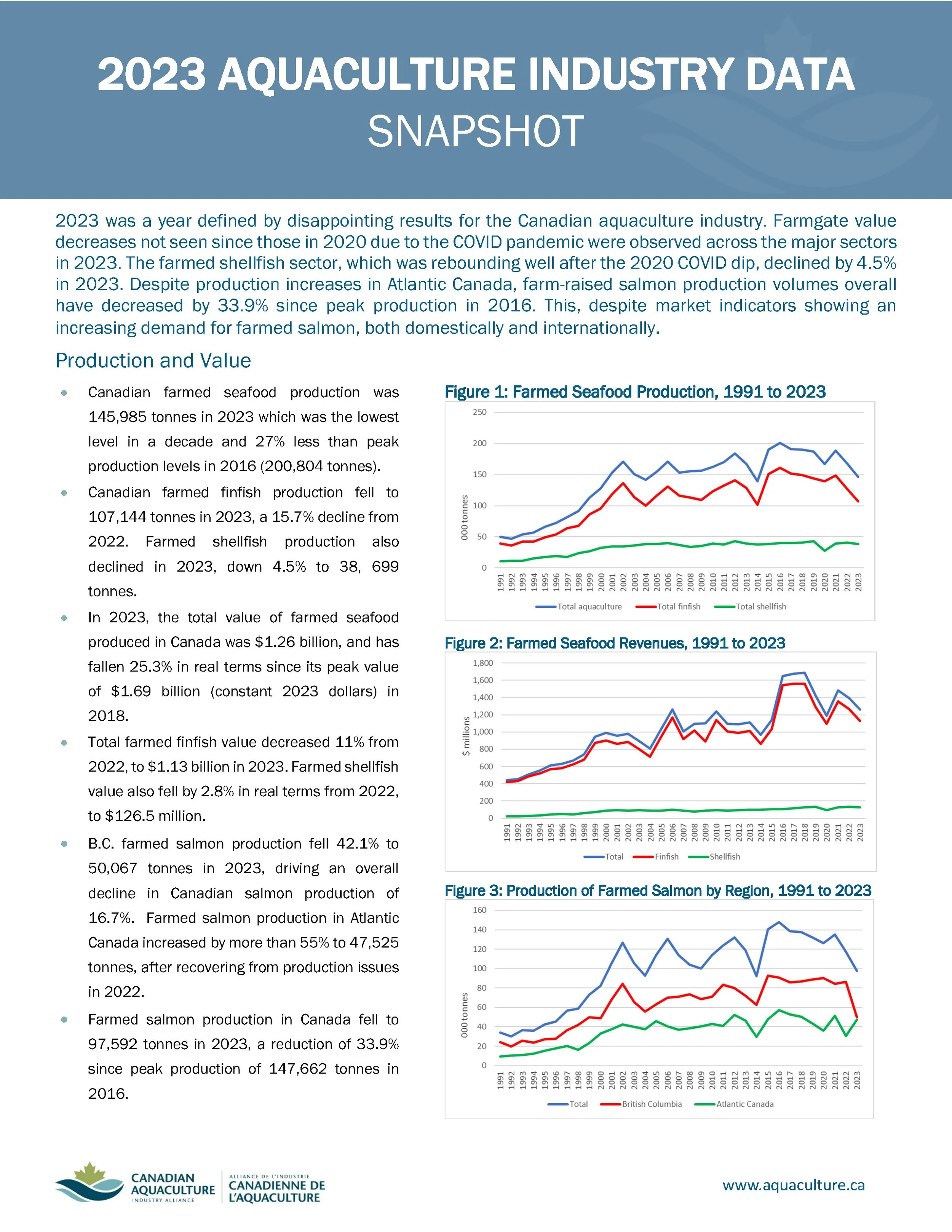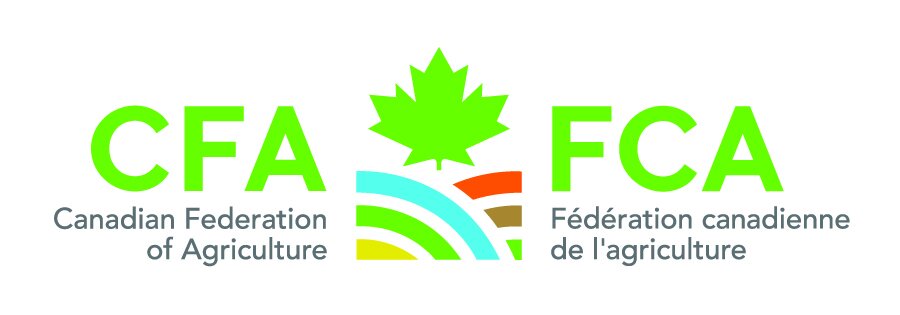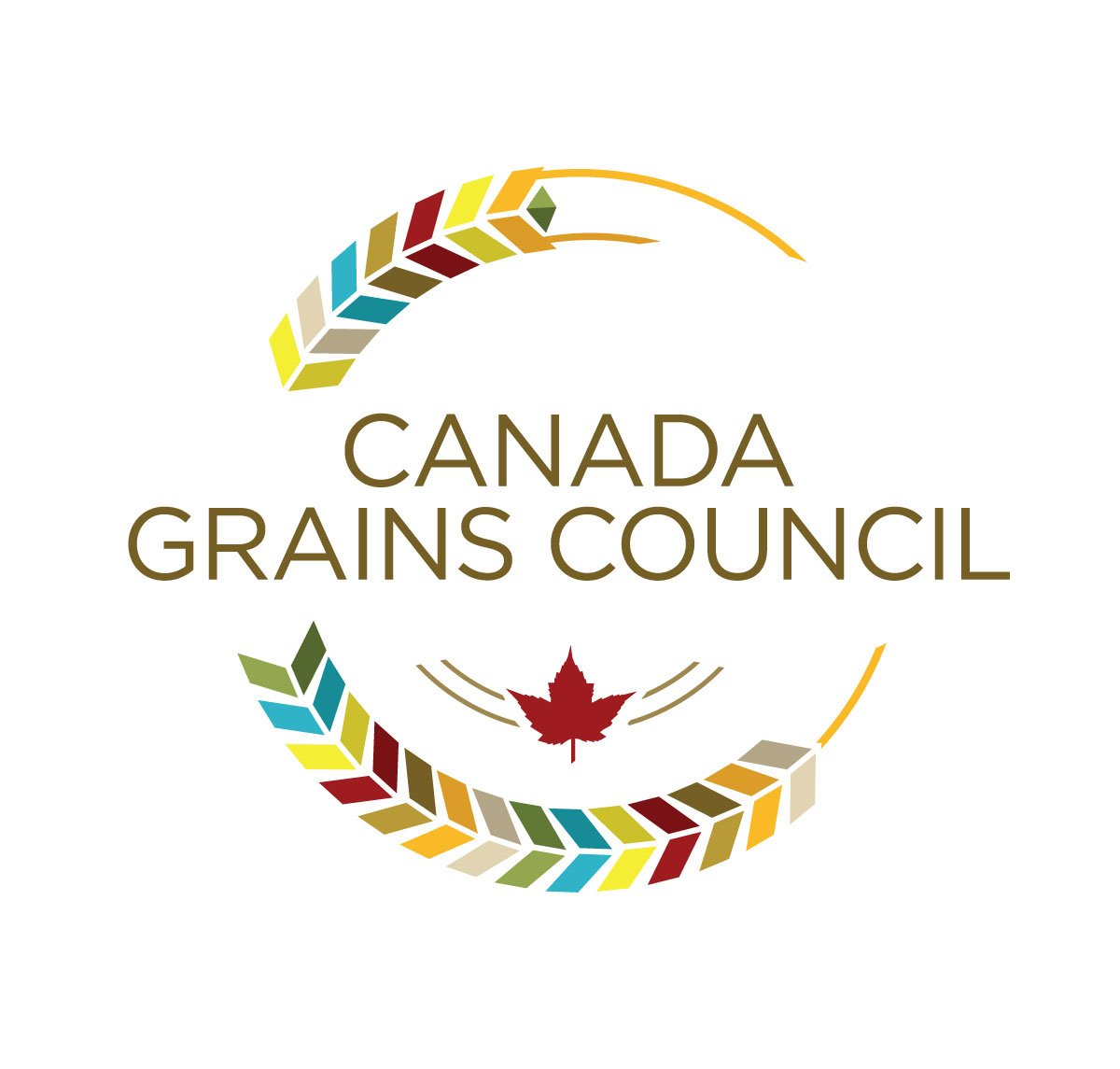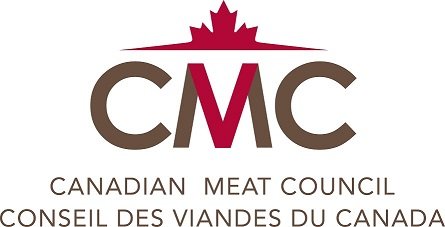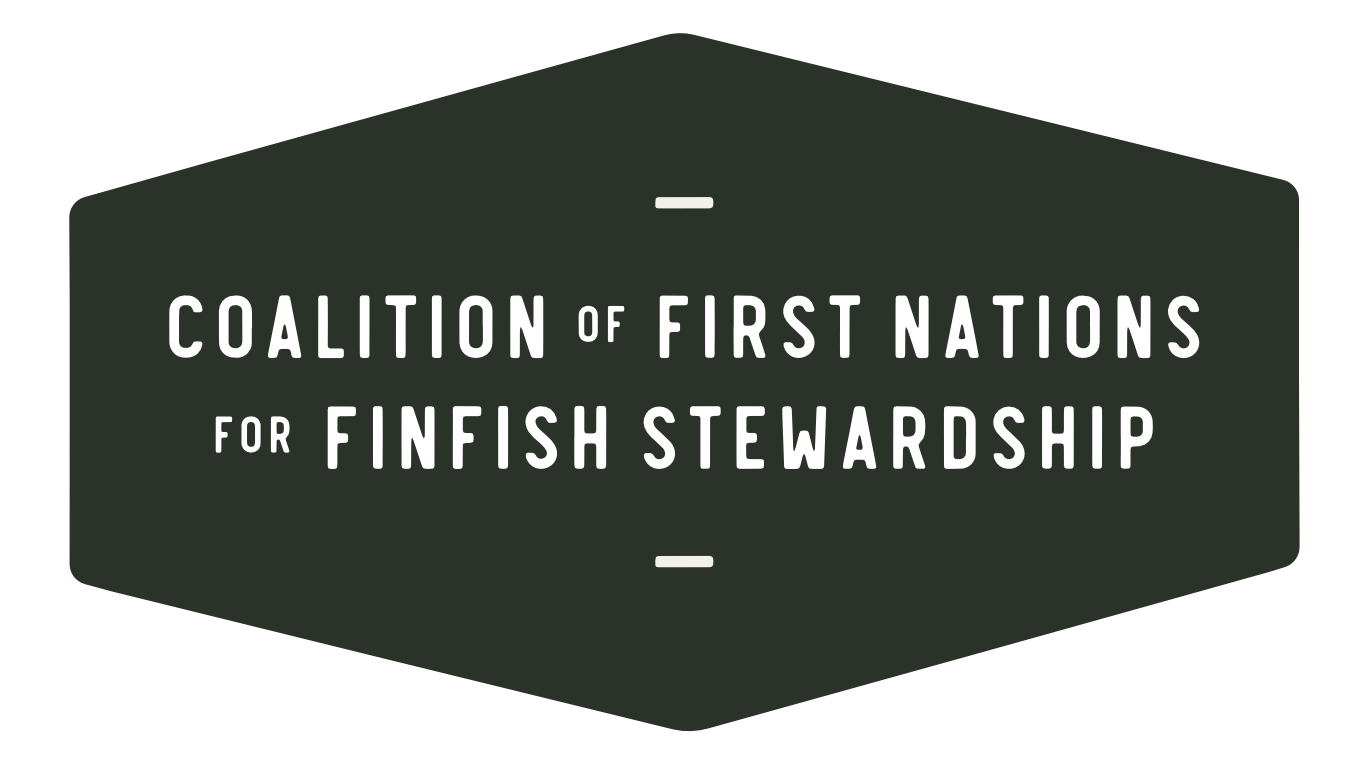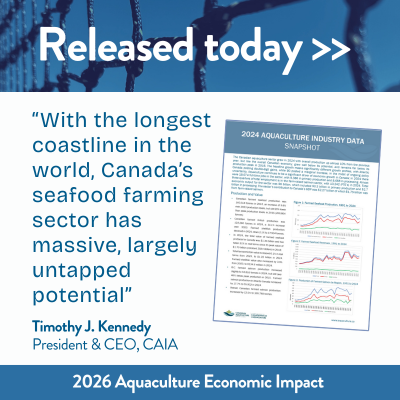
Canada’s Seafood Sovereignty: Urgent Attention Needed
Significant reduction in Canadian farmed salmon from BC threatens Canada’s ability to grow our own healthy food
OTTAWA, ON - A new economic report from the Canadian Aquaculture Industry Alliance (CAIA) confirms that the Trudeau Government’s proposed ban of west coast salmon farms threatens Canada’s food security and sovereignty, thousands of precious Canadian jobs, and impedes Canadians from “buying Canadian.”
“Canada’s aquaculture production is a national economic treasure, but it has been seriously weakened by irresponsible government policies,” says Timothy Kennedy, CAIA President & CEO. “Once a world leader in seafood, Canada now underperforms against global competitors, jeopardizing Canada’s independence and food security at this time of increasing global tensions.”
The 2024 Aquaculture Industry Data Snapshot released by the Canadian Aquaculture Industry Alliance (CAIA), reveals a sector with an economic footprint of $6 billion and 18,000 jobs generated by the sector’s primary revenues of $1.36 billion in 2024. Based on Statistics Canada’s annual release of data, the results are far off the peak value in 2018 of $1.73 billion (constant 2024 dollars).
Prime Minister Mark Carney has committed to prioritize Canadian jobs, sovereignty and “Buy Canadian.” The aquaculture sector is ready to deliver. The Trudeau government’s decisions, including its unscientific 2024 “ban” of “open net pen” salmon farming in British Columbia, have created a chill on investment in the aquaculture sector across Canada and undermined Canadian food independence, restricting Canadian shoppers to buy non-Canadian products.
“With the longest coastline in the world, Canada’s seafood farming sector has massive, largely untapped potential,” said Kennedy. “We are using only about 1 per cent of Canada’s potential. With positive policy signals and similar supports given to the rest of the agriculture sector, we could feed more Canadians with high-quality, home-grown and renewable proteins, keep rural and coastal communities working and growing, achieve meaningful Indigenous reconciliation, and boost Canada’s national and export economies.”
The Snapshot is based on the latest Statistics Canada data. Highlights from the report include:
Production Holding & Revenues Inched Upwards
In 2024, the total value of farmed seafood produced in Canada was $1.36 billion and has fallen 21% in real terms since its peak value of $1.73 billion (constant 2024 dollars) in 2018.
2024 farmed seafood production was 160,318 tonnes, a 9.8% increase over 2023 – but significantly lower than peak production in 2016 of 200,804 tonnes.
Economic Benefits to Coastal and Rural Communities
In 2024 there were 18,074 full-time jobs in the sector, with 9,386 in primary production and 8,688 in processing. Almost three-quarters of total employment is in the farm-raised salmon sector, with 13,242 (FTE’s) in 2024. Labour income was $1.1 billion. Most jobs are in rural, coastal and First Nations communities.
National Salmon Production Grinded Upward
British Columbia farmed salmon production increased slightly to 53,816 tonnes in 2024, but was still over 40% below peak production in 2015. Farmed salmon production in Atlantic Canada increased by 17.7% to 55,232 in 2024. Overall, due to the increases in Atlantic Canada, Canadian farmed salmon production increased by 12.5% to 109,048 tonnes.
Global Demand for Canadian / Imports
Global and domestic demand for farm-raised seafood was strong throughout 2024, and retailers will pay a premium for Canadian grown product. Exports increased by 7.3% in real terms over 2023 but remained almost 20% lower than peak levels seen in 2019.
Kennedy continued, “Four priorities are immediately available to revitalize the sector: First, reverse the BC ban and establish a smart plan for BC salmon farming. Second, establish crisis support and modernization of federal management for the shellfish sector. Third, designate Agriculture and Agri-Food Canada as the federal development lead for the sector. Fourth, withdraw the National Marine Conservation Area Proposal for the south coast of Newfoundland that jeopardizes all seafood production in the region.”
Today, global aquaculture produces more seafood than wild-capture resources. This high-tech food evolution is good for Canadians and the world: more healthy, sustainably-raised protein, more affordable food, jobs in remote coastal communities, and reducing pressure on vulnerable wild species. Canada has an unparalleled opportunity to once again be a global leader in sustainable seafood production.
About the Canadian Aquaculture Industry Alliance (CAIA):
Canadian Aquaculture Industry Alliance is the national association that speaks for Canada’s seafood farmers, representing their interests in Ottawa and internationally to regulators, policy makers and political leaders. CAIA members generate over $6 billion in economic activity, $2.3 billion in GDP, and employ over 18,000 Canadians delivering a healthy, growing and sustainable seafood farming sector in Canada. www.aquaculture.ca
Contact:
Sheri Beaulieu, Marketing and Communications Manager, sheri.beaulieu@aquaculture.ca






